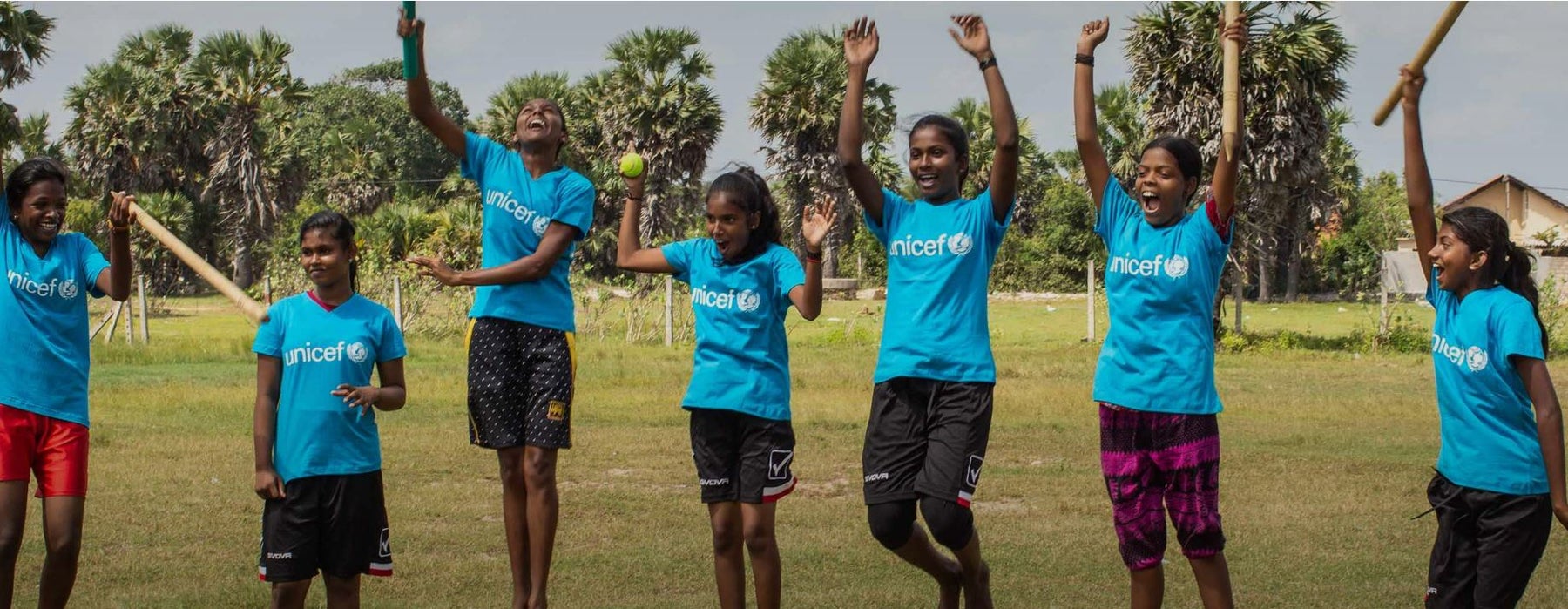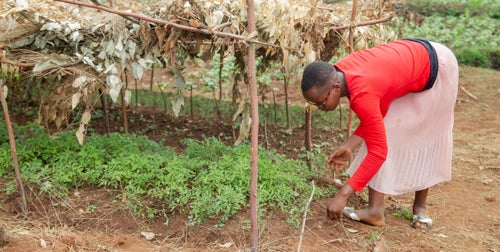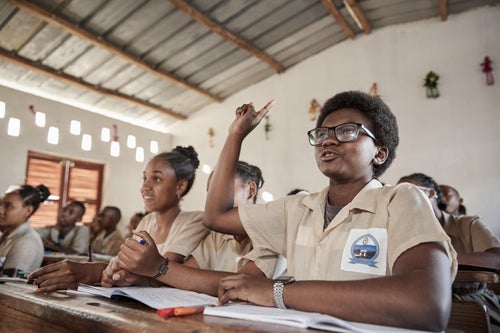Every morning Ashwini, 15, is up early.
By 6.30am she’s out on the cricket pitch for the morning training session. As soon as school finishes at 3.30pm she’s back again.
She’s never missed a practice and is always the first of her team out on the field and ready to play.
Ashwini’s children’s club in Sri Lanka was included in a UNICEF-supported sport for development program, which aimed to ensure girls like her have the opportunity to participate in sports – particularly cricket – to help them build their strength, as well as leadership skills and confidence.
Now, Ashwini is dreaming of representing the Sri Lanka women’s cricket team.
And she’s getting good: she’s the captain of her team, holds the school record for the most wickets in an over (five), and regularly places first at regional school track and field competitions.
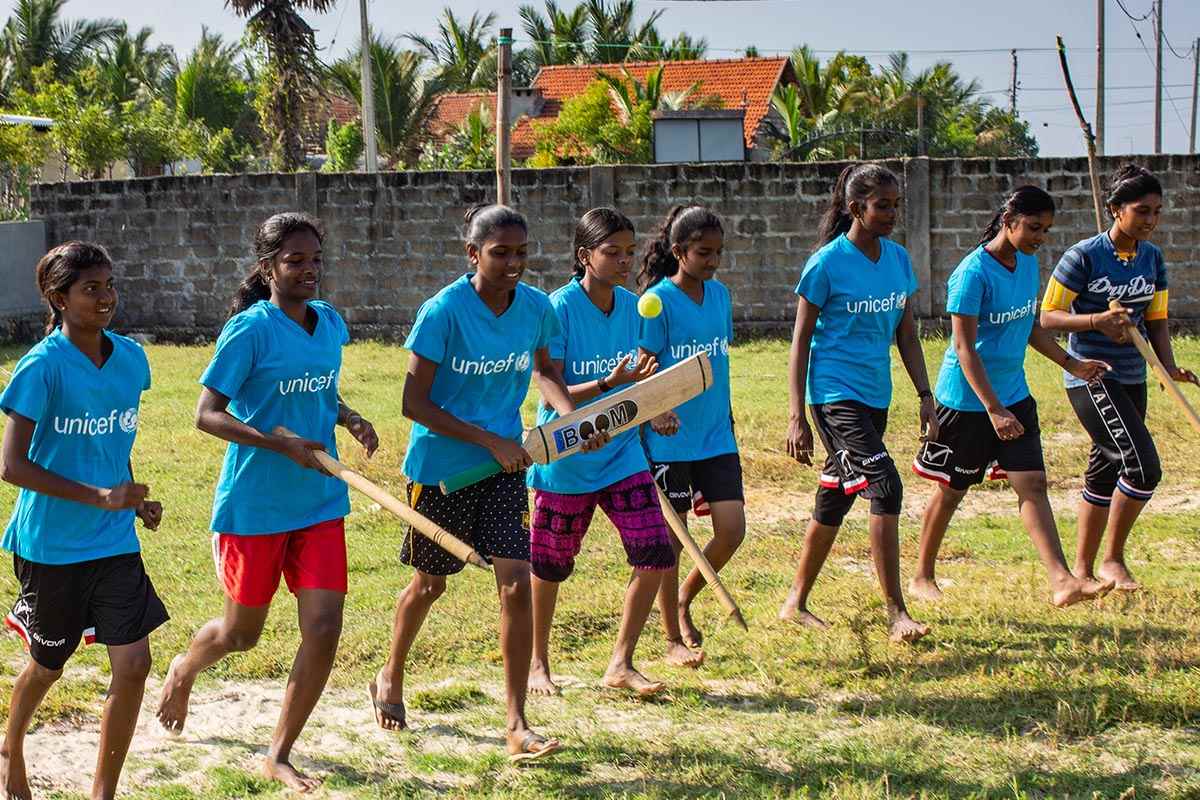
Her family want to see her achieve her dreams, especially her Grandma who accompanies her to all her cricket matches outside their village. Ashwini says without the support of UNICEF she would have not been able to begin her cricket journey.
"Sport can be a great equaliser."
While sport has great benefits for children in terms of physical and mental health, it can also be a powerful force for good, helping to break down barriers, promote participation, change attitudes and include the excluded.
“Sport can be a great equaliser,” explains UNICEF Australia Director of International Programs Felicity Wever.
“Particularly in a country like Sri Lanka where cricket is traditionally seen as a boys sport and it’s only recently been understood as a sport that girls can also play, and that they can play it at the highest levels of the game.”
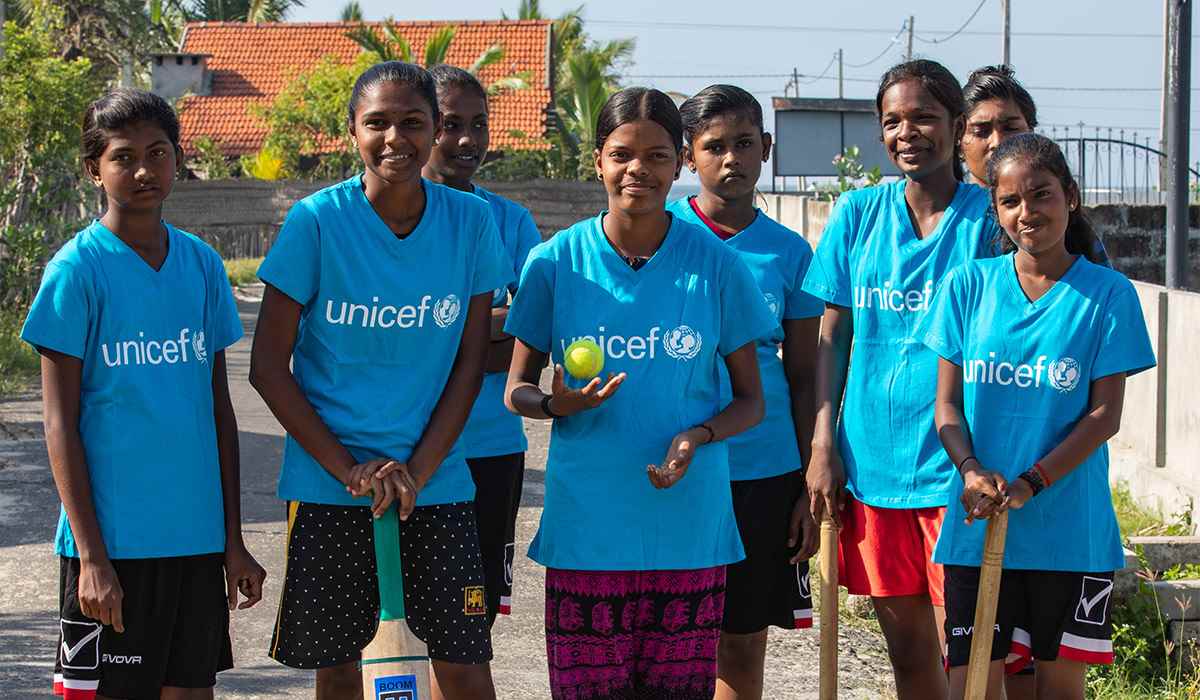
“Sport can help challenge these gender stereotypes, because if we’re all playing, then maybe we’re not that different.”
“That’s the power of sport – it can bring communities together and challenge social norms,” she says.
"If we’re all playing, then maybe we’re not that different."
Having seen how the program has increased students’ participation in sport, particularly girls’ participation in cricket, the teachers and principal at the school want to see the program continue to grow.
SUPPORT THIS PROGRAM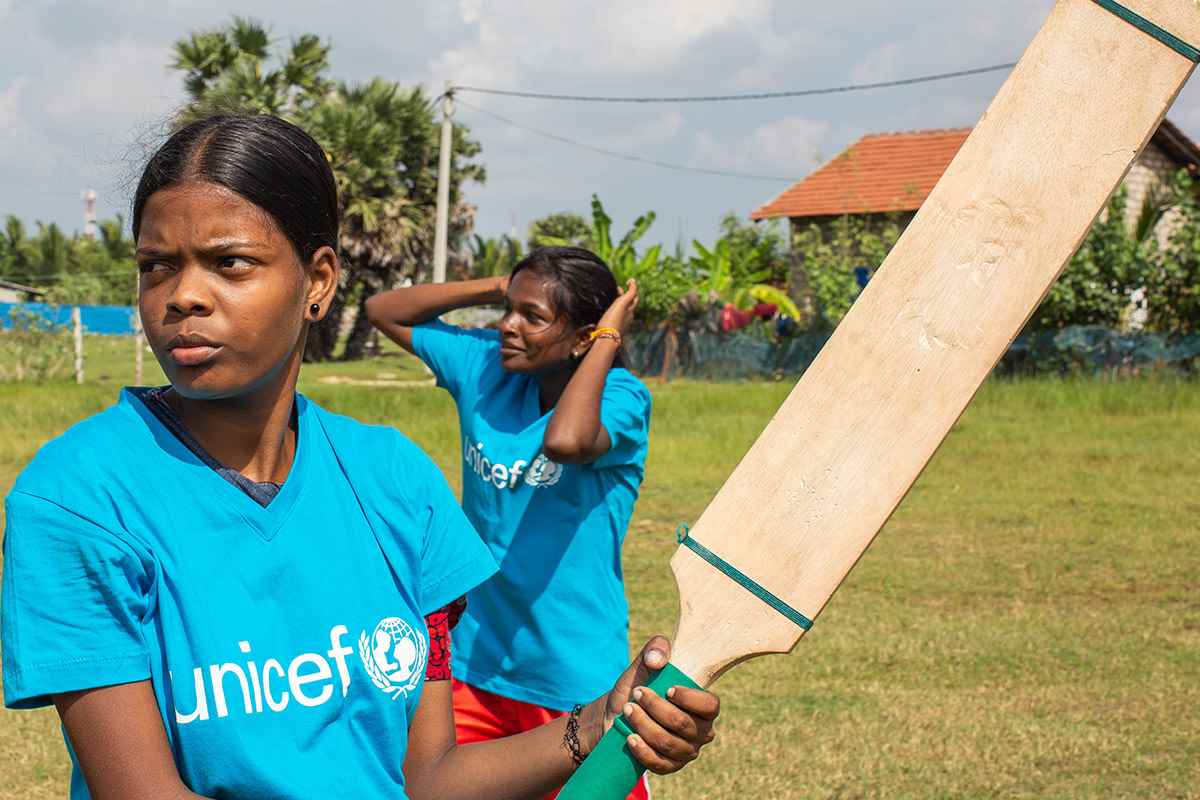
Abisha, 15, also dreams of playing cricket for her country. She wants to be just like Kumar Sangakkara former captain of The Lions, Sri Lanka’s national men’s team.
She loves watching the The Lions on TV and says she’s their biggest fan. However, her school doesn’t have a cricket team, and she can’t often watch the women’s games on TV because its only available on expensive pay TV packages.
"Cricket is always perceived as a men’s game and not fit for girls in our region"
When the school day is over, Abisha and her friends play cricket at a small ground near their village in Jaffna district, in the north of the country. However, for a long time they didn’t have any equipment, or have anyone to coach them.
“Even though we love playing cricket, we [didn’t] have any facilities,” says Abisha. “[The] cricket bat was borrowed from our neighbours.”
through a UNICEF sport for development program, Abisha and her friends received training in cricket technique and equipment.
“We got the required resources and knowledge to play cricket and in addition we gained skills on team building, conflict management, motivation and leadership,” says Abisha.
“With that knowledge we formed a small team from our children’s club.”
"I am very proud to say that we won the Under 15 Cup in Jaffna!"
“Now our small village has gained a reputation for [girls] cricket. I have confidence that I may be able to play for the national women’s team someday.”
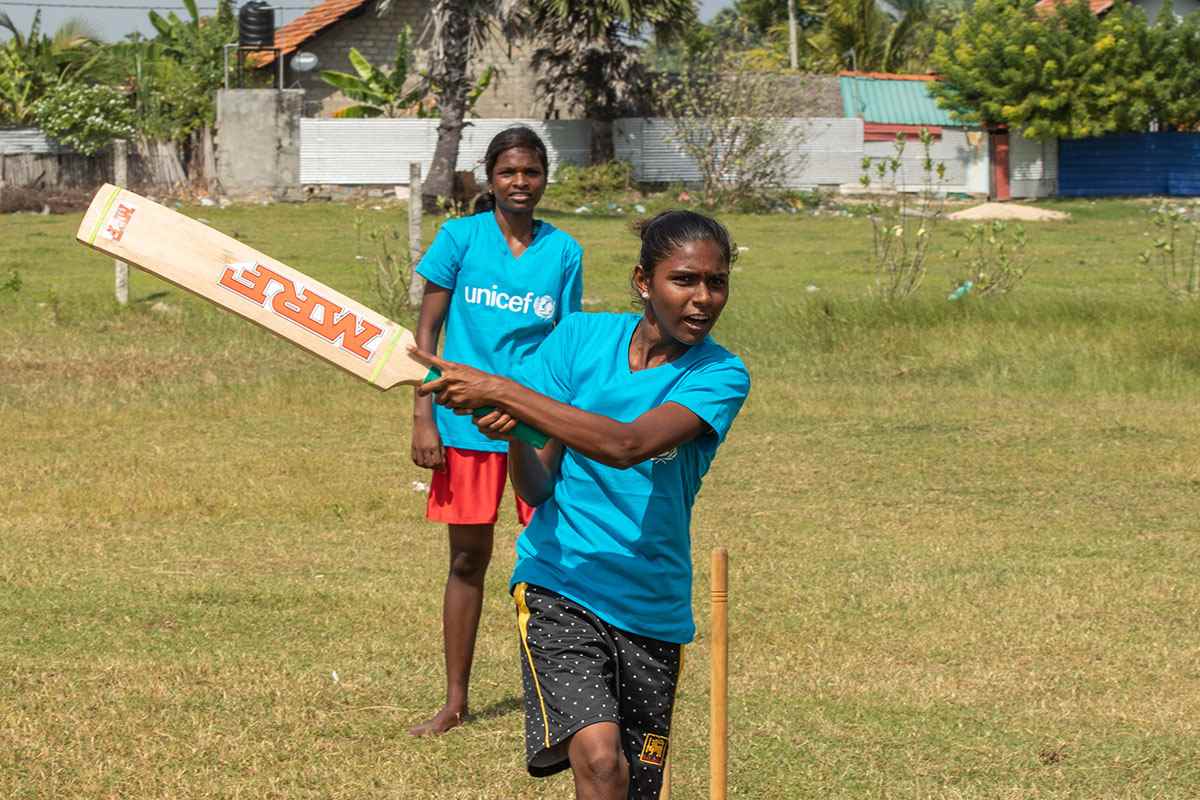
Globally, sport for development initiatives have been shown to build children’s leadership skills and self-esteem, and create better relationships with teachers and adults, increasing their engagement in school.
"Sports coaches have a huge amount of influence in children’s lives and can have a really positive influence on them."
“Having someone who is a person that the kids look up to not only teaching them the correct technique and skills associated with cricket, but also at the same time reinforcing messaging around their self-confidence, mental health, nutrition, school attendance and equality can be a really powerful motivator,” says Felicity.
“Through sport, UNICEF can reach kids in a way which is meaningful to them, in a way they connect to, rather than running a presentation or a class.”
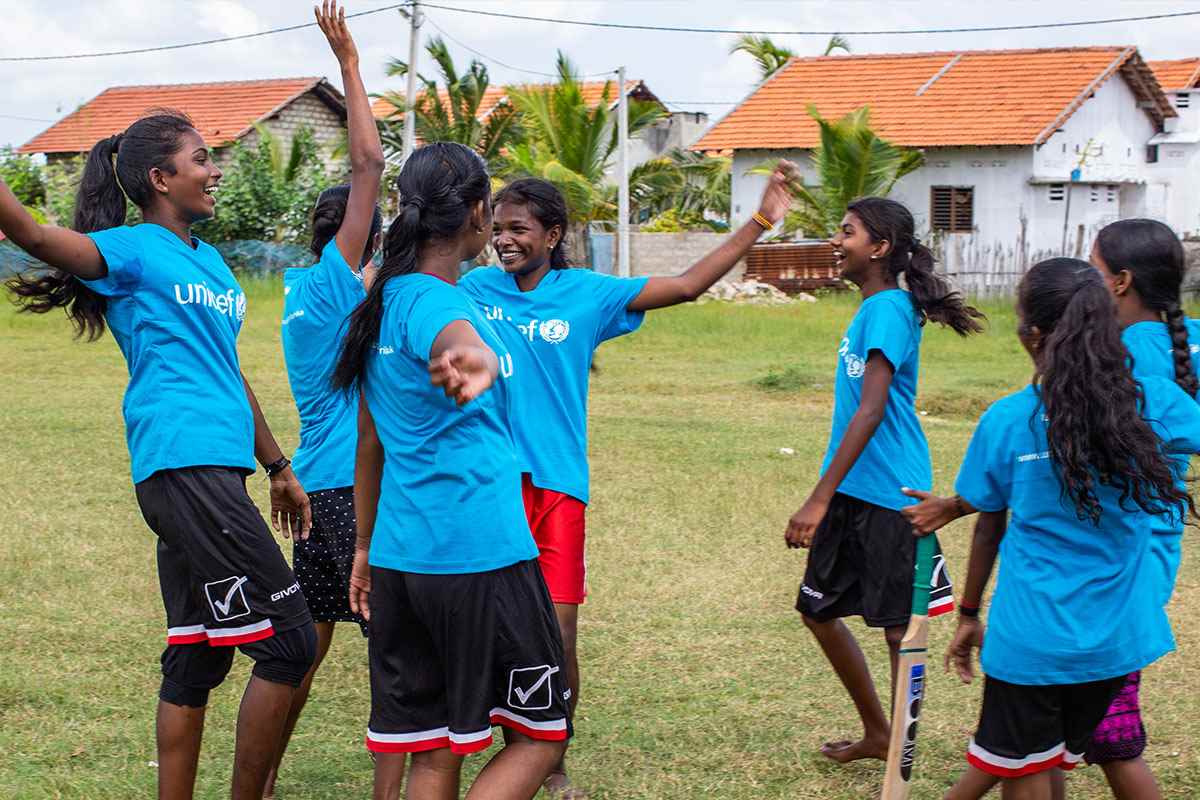
Help us expand this incredible program
With support from the International Cricket Council, UNICEF Sri Lanka and Australia are currently working to expand cricket programs in Sri Lanka so more girls can be empowered through sport.
Please consider supporting this work to empower more girls through cricket and sport.
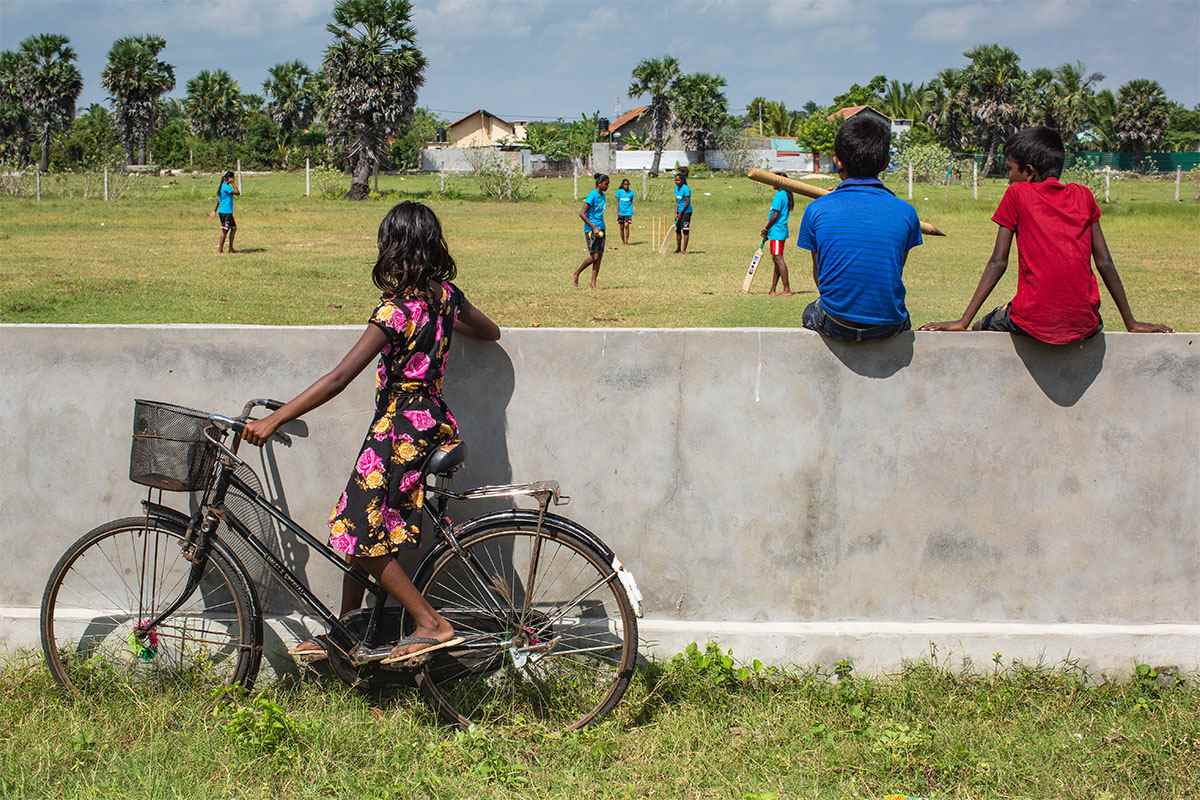
Related articles
Stay up-to-date on UNICEF's work in Australia and around the world



